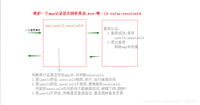要在java中向微信公众号推送模板消息,首先需要确保我们已经有了微信公众号,并且已经设置了模板消息权限和模板id。模板消息是一种向用户发送通知的服务,广泛用于订单状态更新、服务提醒等场景。
下面,我将详细介绍如何使用java结合微信官方提供的api来实现模板消息的推送。这通常涉及几个步骤:获取access_token、组装模板消息数据、发送请求。
第一步:准备工作
微信公众号配置:确保我们的公众号已经开通模板消息功能,并创建了相应的模板。
引入依赖:我们可能需要使用http客户端库,如apache httpclient或okhttp。这里我们使用apache httpclient。
在我们的pom.xml中添加依赖(如果使用maven):
<dependency>
<groupid>org.apache.httpcomponents</groupid>
<artifactid>httpclient</artifactid>
<version>4.5.13</version>
</dependency>第二步:获取access token
微信公众号api的调用大多需要access token,这是一个临时票据,用于调用接口的身份验证。
import org.apache.http.client.methods.httpget;
import org.apache.http.impl.client.closeablehttpclient;
import org.apache.http.impl.client.httpclients;
import org.apache.http.util.entityutils;
public class wechatutil {
private static final string app_id = "我们的appid";
private static final string app_secret = "我们的appsecret";
private static final string token_url = "https://api.weixin.qq.com/cgi-bin/token?grant_type=client_credential&appid={}&secret={}";
public static string getaccesstoken() throws exception {
string url = token_url.replace("{}", app_id).replace("{}", app_secret);
httpget request = new httpget(url);
closeablehttpclient httpclient = httpclients.createdefault();
string result = httpclient.execute(request, httpresponse ->
entityutils.tostring(httpresponse.getentity()));
// 解析json获取access_token,这里假设已经通过某种方式(如jackson, gson)解析
// 这里简单用string.split()模拟解析
string[] parts = result.split(",");
for (string part : parts) {
if (part.contains("access_token")) {
string[] tokenparts = part.split(":");
return tokenparts[1].trim().replace("\"", "");
}
}
return null;
}
}第三步:发送模板消息
import org.apache.http.client.methods.httppost;
import org.apache.http.entity.stringentity;
import org.apache.http.message.basicheader;
import org.apache.http.util.entityutils;
public class templatemessagesender {
public static void sendtemplatemessage(string accesstoken, string touseropenid, string templateid, string url, map<string, templatedata> data) throws exception {
string json = "{\"touser\":\"" + touseropenid + "\",\"template_id\":\"" + templateid + "\",\"url\":\"" + url + "\",\"data\":{";
for (map.entry<string, templatedata> entry : data.entryset()) {
json += "\"" + entry.getkey() + "\":{\"value\":\"" + entry.getvalue().getvalue() + "\",\"color\":\"" + entry.getvalue().getcolor() + "\"},";
}
if (!json.endswith(",")) {
json = json.substring(0, json.length() - 1);
}
json += "}}";
string messageurl = "https://api.weixin.qq.com/cgi-bin/message/template/send?access_token=" + accesstoken;
httppost request = new httppost(messageurl);
request.setheader(new basicheader("content-type", "application/json; charset=utf-8"));
request.setentity(new stringentity(json, "utf-8"));
closeablehttpclient httpclient = httpclients.createdefault();
string result = httpclient.execute(request, httpresponse ->
entityutils.tostring(httpresponse.getentity()));
system.out.println("发送结果: " + result);
}
static class templatedata {
private string value;
private string color;
// 构造器、getter和setter省略
}
}第四步:调用发送模板消息的方法
在完成了wechatutil类用于获取access_token和templatemessagesender类用于发送模板消息后,我们需要在我们的应用逻辑中调用这些方法。以下是一个示例,展示如何整合这些步骤来发送模板消息。
首先,确保我们有一个包含模板消息数据的map,其中键是模板中定义的字段名,值是templatedata对象(包含具体的值和可选的颜色)。
import java.util.hashmap;
import java.util.map;
public class wechattemplatemessageexample {
public static void main(string[] args) {
try {
// 获取access_token
string accesstoken = wechatutil.getaccesstoken();
if (accesstoken == null) {
system.out.println("获取access_token失败");
return;
}
// 准备模板消息数据
map<string, templatemessagesender.templatedata> data = new hashmap<>();
data.put("first", new templatemessagesender.templatedata("这是第一条消息", "#173177"));
data.put("keyword1", new templatemessagesender.templatedata("这是关键词1的内容", "#173177"));
data.put("keyword2", new templatemessagesender.templatedata("这是关键词2的内容", "#173177"));
data.put("remark", new templatemessagesender.templatedata("这是备注信息", "#173177"));
// 发送模板消息
string touseropenid = "用户的openid";
string templateid = "我们的模板id";
string url = "点击后跳转的链接";
templatemessagesender.sendtemplatemessage(accesstoken, touseropenid, templateid, url, data);
system.out.println("模板消息发送成功");
} catch (exception e) {
e.printstacktrace();
system.out.println("发送模板消息失败:" + e.getmessage());
}
}
}注意事项
- 安全性:在实际应用中,应避免将
app_id和app_secret硬编码在代码中,可以通过配置文件或环境变量等方式来管理。 - 错误处理:上述示例中的错误处理非常简单,仅打印了堆栈跟踪和错误消息。在生产环境中,我们可能需要更复杂的错误处理逻辑,比如重试机制、日志记录等。
- http客户端:示例中使用了apache httpclient,但我们也可以选择其他http客户端库,如okhttp、retrofit等。
- json解析:示例中使用了简单的字符串操作来模拟json解析,但在实际开发中,我们应该使用专门的json库(如jackson、gson)来解析和构建json数据。
- 模板id和openid:确保模板id和用户的openid是正确的,并且模板id与我们要发送的数据字段相匹配。
- api限制:微信对api调用有频率限制,请确保我们的应用不会超出这些限制。
通过上述步骤,我们应该能够在java中成功地向微信公众号发送模板消息。
到此这篇关于java微信公众号推送模版消息的方法示例的文章就介绍到这了,更多相关java微信公众号模版消息内容请搜索代码网以前的文章或继续浏览下面的相关文章希望大家以后多多支持代码网!







发表评论